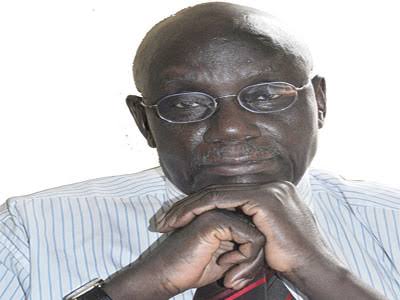In the 12 years since Boko Haram started as a terrorist insurgency in the Northeast sub-region, millions of people have been affected in ways big and small. This is a well-known fact.
Also well-known is the fact that in the wake of Boko Haram’s relentless attacks on communities before the insurgent group was significantly subdued by the security forces, many people were forced from their homes. Among these were some who settled with near relatives; those who settled in host communities, such as in Kuka-Reta town on the outskirts of Damaturu metropolis; and those who initially lived in IDP camps.
However, it’s been many years since official IDP camps were closed in Yobe State. This is because many of the people in those IDP camps were helped by the state government and by development partners to return to their communities or, in some cases, to fully settle in their respective host communities.
There were a few exceptions to this, however. There were situations where former IDPs, earlier displaced from their communities, decided to take up residence in newly sprung neighborhoods on the outskirts of the state capital. Many of those people simply engage in their individual vocations or activities every day.
Some engage in farming or operate as farm workers while others engage in menial jobs and small businesses to support their families. Among those living close to the Yobe State University, for instance, there are some who have even set up shops or stalls on campus and engage in their legitimate small businesses.
But among this category of initially displaced persons, there are also some who required food handouts. The State Emergency Management Agency (SEMA), having reckoned with that, periodically provides food and other non-food-item-support to these people.
The Yobe SEMA, one of the most notable and active in the country, has a well-documented inventory of supporting these people and other IDPs affected by disasters or conflicts. Anyone seeking to know more can visit SEMA’s different handles on social media to see photos, videos, notes and actual testimonies of people who had benefited from the agency’s support among vulnerable and affected communities throughout the state.
Yobe SEMA’s wide-ranging interventions are testament to the commitment of Governor Mai Mala Buni to help people in need and to ensure that people affected by the Boko Haram insurgency can reclaim their lives and build a future for themselves and their families.
Last week, the United Nations Resident Representative and UNDP Coordinator in Nigeria, Mohamed Yahya visited Yobe State and offered to assist the state government in its resettlement, reconstruction and stabilization effort.
As was widely reported, the UN resident representative and his team, along with Governor Mai Mala Buni and other Yobe government officials, travelled to Mallam Dunari ward in Gujba local government area, the one and only remaining ward in the state where initially displaced people have yet to return, after being displaced by the Boko Haram insurgency.
The UNDP coordinator promised that the United Nations will help the Yobe State Government to resettle the Mallam Dunari people back in their communities in a dignified manner.
Anyone following the trajectory of effort of the Mai Mala Buni administration with regards to IDPs affected by the Boko Haram insurgency, therefore, knows that providing humanitarian support to people affected by conflict has been and still remains front and center of the administration’s humanitarian interventions.
This is why I find a recent news report by Premium Times titled “Yobe IDPs: Displaced by Boko Haram, Abandoned by Government, Ravaged by hunger” not only wildly out of context but demonstrably misleading and mischievous.
First, there is no question that to this day, people remain significantly impacted by Boko Haram. It will take probably many years before the impacts of the insurgency can be wiped off people’s lives in the BAY states of Borno, Adamawa and Yobe. But the idea that the Abbari camp in Damaturu, where the Premium Times report was focused “is among 445 displaced sites in the state” is totally false.
Abbari area has been in existence in the state capital for many years. But the area has expanded recently when people initially displaced by the Boko Haram conflict decided on their own to take residence in the area. It’s therefore not an IDP camp although people who were previously IDP now live in the area.
The Premium Times report essentially focused on two women affected by the conflict. But our checks revealed that many of the portrayals of those women were hyped or downright false. One of them, paradoxically, currently owns a stall at the Yobe State University campus and engages in small business.
“That woman cannot be taken to a police station over N1 million”, someone who knows about her said. Even if this (financial chest) is not the case, the idea that the woman has a stall on campus at the Yobe State University and goes there everyday to engage in her small business belies the submissions about her condition in the Premium Times report.
While I agree that the media have a constitutional license to hold government accountable to the people, that cannot be at the expense of the truth, facts and context – and that while opinions are free, facts are (and must remain) sacred.
The Buni administration does not have an unlimited war chest to attend to all the challenges that the Boko Haram insurgency has thrown. But there is no question that within the limits of available resources – and the support of development partners, the administration continues to do well in offering succor and support to those most in need. I believe this will remain the case to the end of the administration’s term in office.
Yawale is head of information department, Ministry of Home Affairs and Information, Yobe State

































